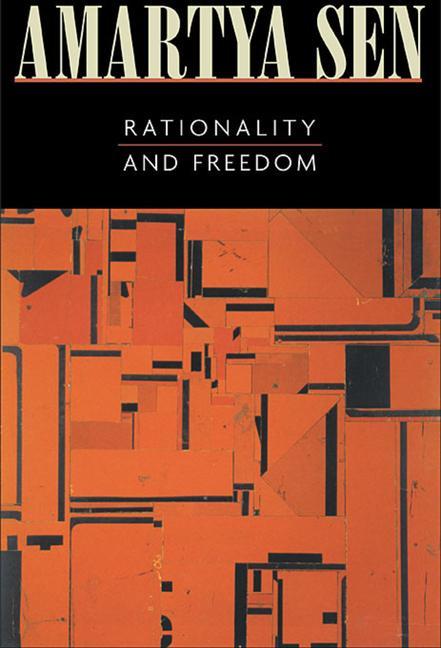
Zustellung: Mi, 27.11. - Di, 03.12.
Versand in 3-4 Wochen
VersandkostenfreiBestellen & in Filiale abholen:
Rationality and freedom are among the most profound and contentious concepts in philosophy and the social sciences. In two volumes on rationality, freedom, and justice, the distinguished economist and philosopher Amartya Sen brings clarity and insight to these difficult issues. This volume--the first of the two--is principally concerned with rationality and freedom.
Inhaltsverzeichnis
Preface Part I General Introductions 1. Introduction: Rationality and Freedom 2. The Possibility of Social Choice Part II Rationality: Form and Substance 3. Internal Consistency of Choice 4. Maximization and the Act of Choice 5. Goals, Commitment, and Identity 6. Rationality and Uncertainty 7. Non-Binary Choice and Preference Part III Rationality and Social Choice 8. Rationality and Social Choice 9. Individual Preference as the Basis of Social Choice 10. Social Choice and Justice 11. Information and Invariance in Normative Choice Part IV Liberty and Social Choice 12. Liberty and Social Choice 13. Minimal Liberty 14. Rights: Formulation and Consequences Part V Perspectives and Policies 15. Positional Objectivity 16. On the Darwinian View of Progress 17. Markets and Freedoms 18. Environmental Evaluation and Social Choice 19. The Discipline of Cost-Benefit Analysis Part VI Freedom and Social Choice: The Arrow Lectures Introductory Remarks 20. Opportunities and Freedoms 21. Processes, Liberty and Rights 22. Freedom and the Evaluation of Opportunity Name Index Subject Index
Produktdetails
Erscheinungsdatum
30. März 2004
Sprache
englisch
Seitenanzahl
752
Autor/Autorin
Amartya Sen
Verlag/Hersteller
Produktart
kartoniert
Gewicht
971 g
Größe (L/B/H)
231/162/36 mm
ISBN
9780674013513
Entdecken Sie mehr
Pressestimmen
Amartya Sen occupies a unique position among modern economists. He is an outstanding economic theorist, a world authority on social choice and welfare economics. He is a leading figure in development economics, carrying out pathbreaking work on appraising the effectiveness of investment in poor countries and, more recently, on famine. At the same time, he takes a broad view of the subject and has done much to widen the perspective of economists. -- A. B. Atkinson New York Review of Books Sen brings a hard-edged intellect to regions of thought usually regarded as slushy and amorphous...Anyone interested in the topics of freedom, equality, or justice would profit from a close reading of this book. -- Richard J. Arneson American Political Science Review A work of striking intellectual ambition and unusual intellectual patience, tensely engaged in many different struggles and on a wide variety of levels. What it offers is not a set of simple and readily portable conclusions, or a means for reconciling the reader to a devastatingly imperfect historical world, but a sustained effort to clarify where the main imperfections come from, and what could, in principle, be done to alleviate them. -- John Dunn Times Higher Education Supplement 20030725 One of the most attractive qualities of Rationality and Freedom is an extraordinary intellectual good nature. Whenever he can express gratitude, Professor Sen does so; whenever he criticizes it is gently--and save on very rare occasions it is only after he has expressed his appreciation for the stimulus provided by the error he uncovers. It would be a poor return for what he offers us here to pretend that everything he writes is equally persuasive; for even when he is unpersuasive he provides intellectual pleasures that few writers can match. -- Alan Ryan New York Review of Books 20031204 Sen's arguments about social choice are important. The first chapter of the book offers a straightforward and comprehensive account of the social choice approach and this discussion is extended in the Nobel Lecture that forms the second chapter of the book... [I]t should be widely consulted by social development scholars who need to understand rational choice liberalism and its relevance to social development. Social Development Issues
Bewertungen
0 Bewertungen
Es wurden noch keine Bewertungen abgegeben. Schreiben Sie die erste Bewertung zu "Rationality and Freedom" und helfen Sie damit anderen bei der Kaufentscheidung.









